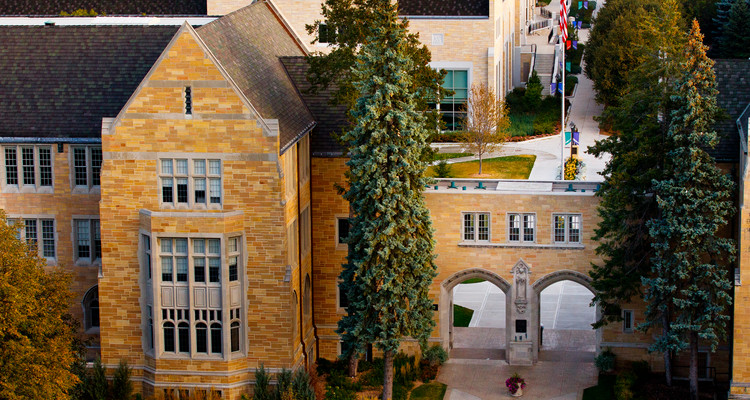An Adjunct Faculty Task Force has been appointed to begin work on concerns identified by adjunct faculty members, and a permanent Adjunct Faculty Council will be established during the fall semester.
Dr. Richard Plumb, provost and executive vice president, announced the appointment of the task force last week. Adjunct faculty members are:
- Tom Becker, School of Engineering
- Michele Braley, School of Social Work
- Ann Brodeur, College of Arts and Sciences
- Uyen Campbell, School of Law
- Dr. Sheila Dickinson, College of Arts and Sciences
- Rodney Hagedorn, Opus College of Business
- Anne Howard, College of Education, Leadership and Counseling
- Ken Kalamaha, College of Education, Leadership and Counseling
- Marguerite Spencer, College of Arts and Sciences
- Kim Sovell, Opus College of Business
Michelle Thom, associate vice president for human resources, and Dr. Paul Wojda, a tenured associate professor in the Department of Theology, are ex officio task force members. Plumb soon will name a second tenured faculty member to the group.
The task force will develop recommendations for establishing the council, addressing issues such as the council’s size, representation, eligibility, compensation, election process and initial bylaws. Plumb will review and approve those recommendations with the task force, which will cease to exist after the council is appointed. In addition, the task force will provide feedback to Plumb on any adjunct faculty proposals that need to be considered before the council is established.
President Julie Sullivan included the establishment of the task force and council as priorities after adjunct faculty who teach undergraduate classes voted in July against union representation. At the time, she outlined her vision of a task force and council, both of which will include representatives at the undergraduate and graduate levels.
“The council will provide a forum for adjunct faculty to communicate and interact with each other, identify opportunities for improving the situation of adjunct faculty beyond the already-identified priorities, and strategize ways of better integrating adjunct faculty into our university community,” she wrote in an email in July. “Ultimately, our goal is to provide adjunct faculty with a variety of participation options to meet varying preferences for levels of involvement at St. Thomas” and to create and sustain “an academic community through open and transparent dialogue where all members are respected, feel valued, and are focused on student learning and outcomes.”
Plumb said Thom is working with Human Resources staff on alternatives for adjunct faculty to participate in St. Thomas’ benefit programs, taking into account the range of their workloads. They have consistently identified benefits as their greatest need.
Plumb also is working with deans and department chairs on differentiated adjunct faculty contracts based on varying levels of participation; issuing contracts on a more consistent basis; developing a portal to review potential annual salary increases; and working with the Faculty Senate on adjunct faculty representation.
He is collaborating with Dr. Ann Johnson, director of the Center for Faculty Development, to provide greater funding mechanisms for adjunct faculty development and to design workshops for department chairs to share best practices on recognizing the contributions of adjunct faculty.







